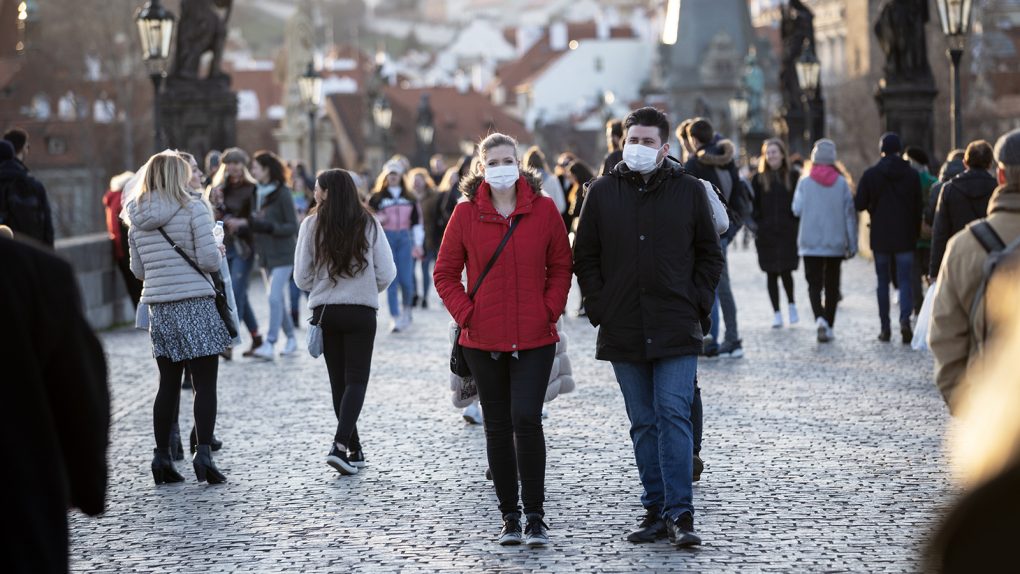- The coronavirus will never disappear, Moderna CEO Stephan Bancel said during a panel earlier this week. “We are going to live with this virus, we think, forever,” he said.
- Separately, a new study that modeled the evolution of the COVID-19 pandemic said that the illness would indeed become endemic, but the virus “may be no more virulent than the common cold.”
- The researchers said that COVID-19 infections would occur primarily during childhood, which could lead to prolonged protection against severe cases in adulthood, even if reinfection will still be possible. The only caveat is that the initial childhood version of the illness has to be mild.
We heard this prediction early in the pandemic from WHO researchers and Dr. Anthony Fauci. The novel coronavirus isn’t likely to be eradicated, no matter how effective vaccines are. Instead, we’ll have to learn to live with the illness as it transitions from the pandemic to the endemic phase. The same thing happened with the flu and other infectious diseases that circulate and lead to outbreaks. But vaccines and improved therapies have significantly reduced the fatality rate of those illnesses.
Moderna CEO Stephan Bancel repeated the same prediction earlier this week. The world will have to live with COVID-19 “forever.” But that’s not as scary as it sounds, and a study proposes that the novel coronavirus illness might one day be as harmless as a common cold caused by some of its siblings.
“SARS-CoV-2 is not going away,” Bancel said during a JPMorgan Healthcare Conference on Wednesday. “We are going to live with this virus, we think, forever,” he added.
Moderna makes one of the frontrunner vaccine candidates that have cleared the Phase 3 trial successfully. The drug is highly effective, just like the Pfizer/BioNTech vaccine, and has received emergency use authorization in the US and European Union. Moderna already expects the drug to offer immunity for at least a year, if not longer. Moderna will continue to study the drug to develop protocols for future rounds of vaccination.
Separately, researchers from Emory University and the Pennsylvania State Universit have penned a study that explains how the severity of COVID-19 will change over the years. They expect the virus to eventually become no more virulent than a common cold, with people likely to contract the illness during childhood.
“Our analysis of immunological and epidemiological data on endemic human coronaviruses (HCoVs) shows that infection-blocking immunity wanes rapidly, but disease-reducing immunity is long-lived,” the researchers wrote. “Our model, incorporating these components of immunity, recapitulates both the current severity of [SARS-CoV-2] and the benign nature of HCoVs, suggesting that once the endemic phase is reached and primary exposure is in childhood, [SARS-CoV-2] may be no more virulent than the common cold.”
That all depends on the nature of COVID-19 in childhood, the researchers explain. The less severe the illness is during childhood, the easier it will be to cope with it as an adult. Should that be the case with COVID-19, mass vaccinations might not even be required once the pandemic resolves and SARS-CoV-2 becomes endemic.
“The changes in the [infection fatality ratios (IFR)] over time predicted by the model have implications for vaccination strategy against current and future emerging HCoVs,” the researchers wrote. “Social distancing and an effective vaccine are critical for control during a virgin epidemic and the transition out of it, but once we enter the endemic phase, mass vaccination may no longer be necessary.”
“The necessity for continual vaccination will depend on the age-dependence of the IFR. If primary infections of children are mild,” like in SARS and COVID-19, “continued vaccination may not be needed as primary cases recede to mild childhood sniffles. If, on the other hand, primary infection is severe in children (as for MERS), then vaccination of children will need to be continued.”
These studies can’t predict, however, when COVID-19 will transition from pandemic to endemic. Vaccines like the Pfizer/BioNTech and Moderna drugs that are already in use, and the other candidates that are still in testing, could help countries reach herd immunity faster and safer than direct exposure to the virus. Experts like Dr. Fauci predict that countries with access to vaccines already might end their COVID-19 outbreaks by fall or late 2021, provided a significant number of people are immunized. For the time being, SARS-CoV-2 is surging in several countries, with the US still leading in infections and mortality statistics.







